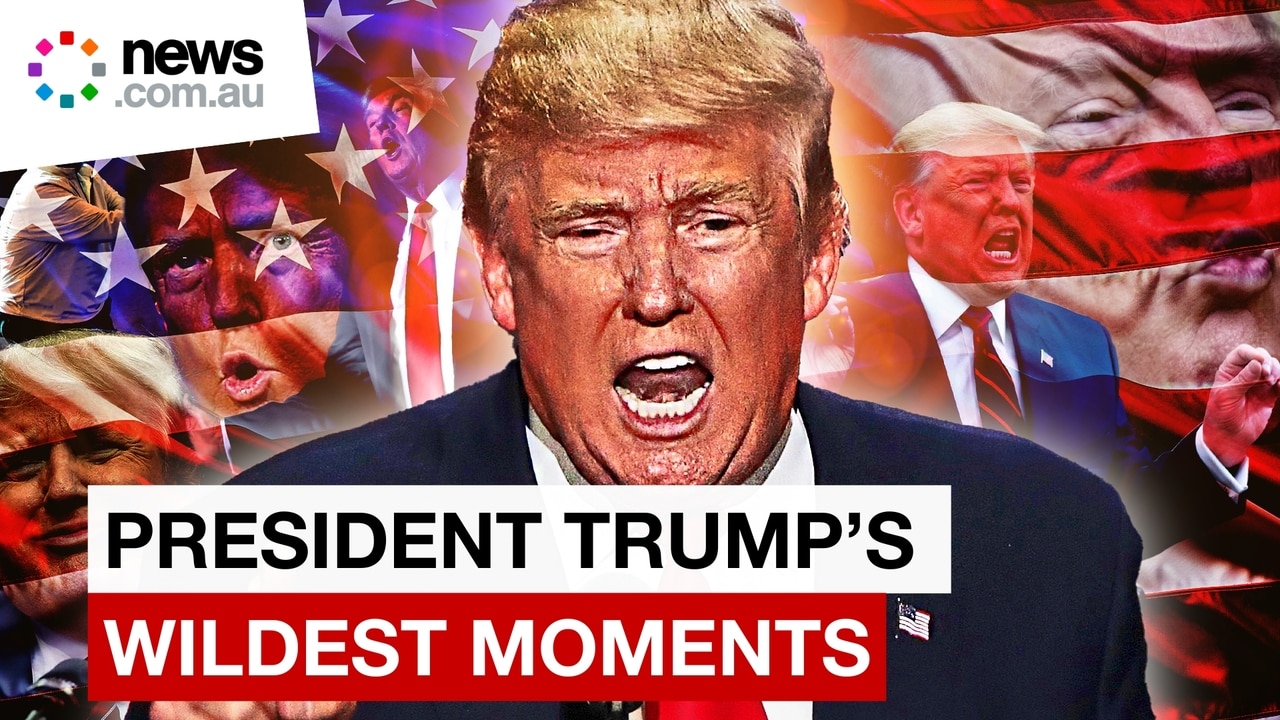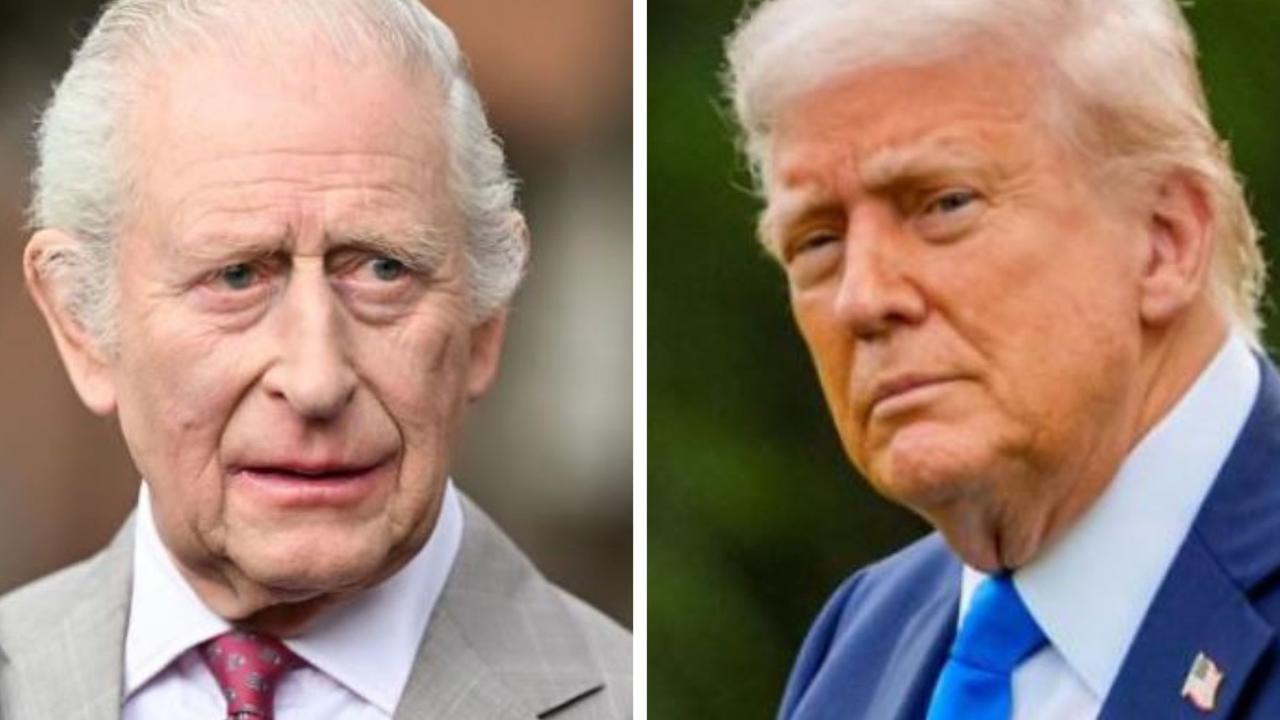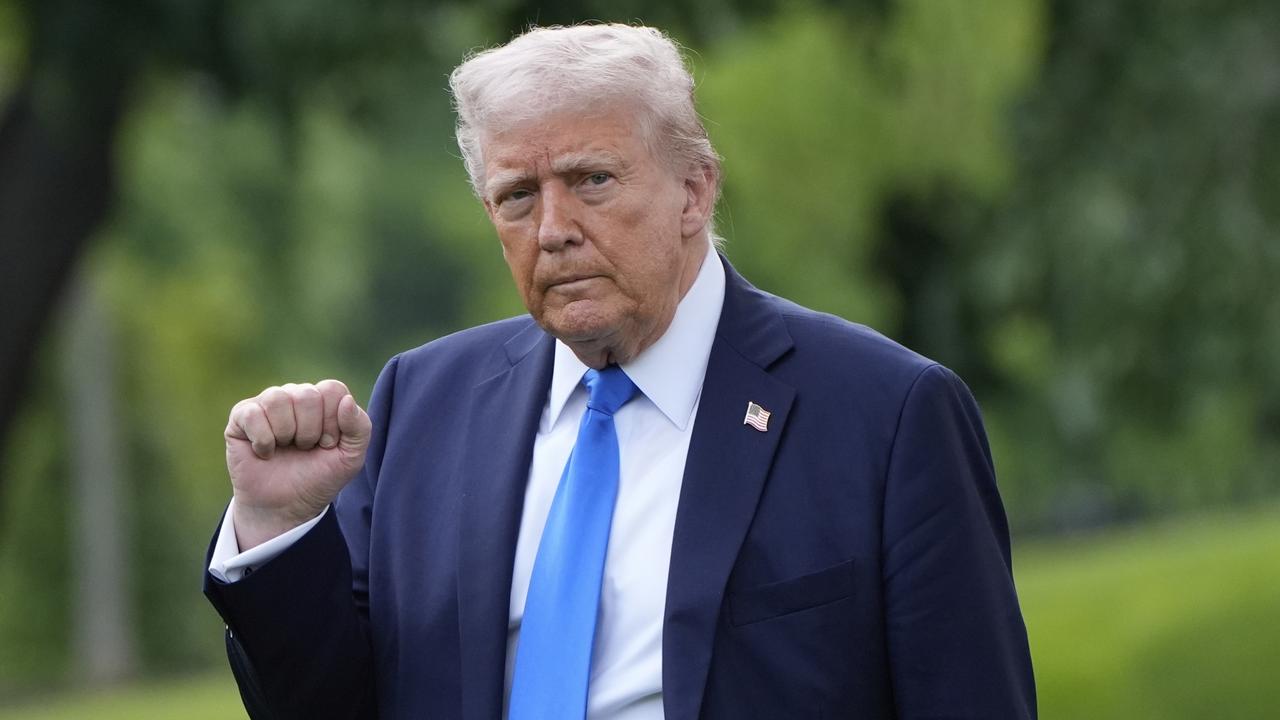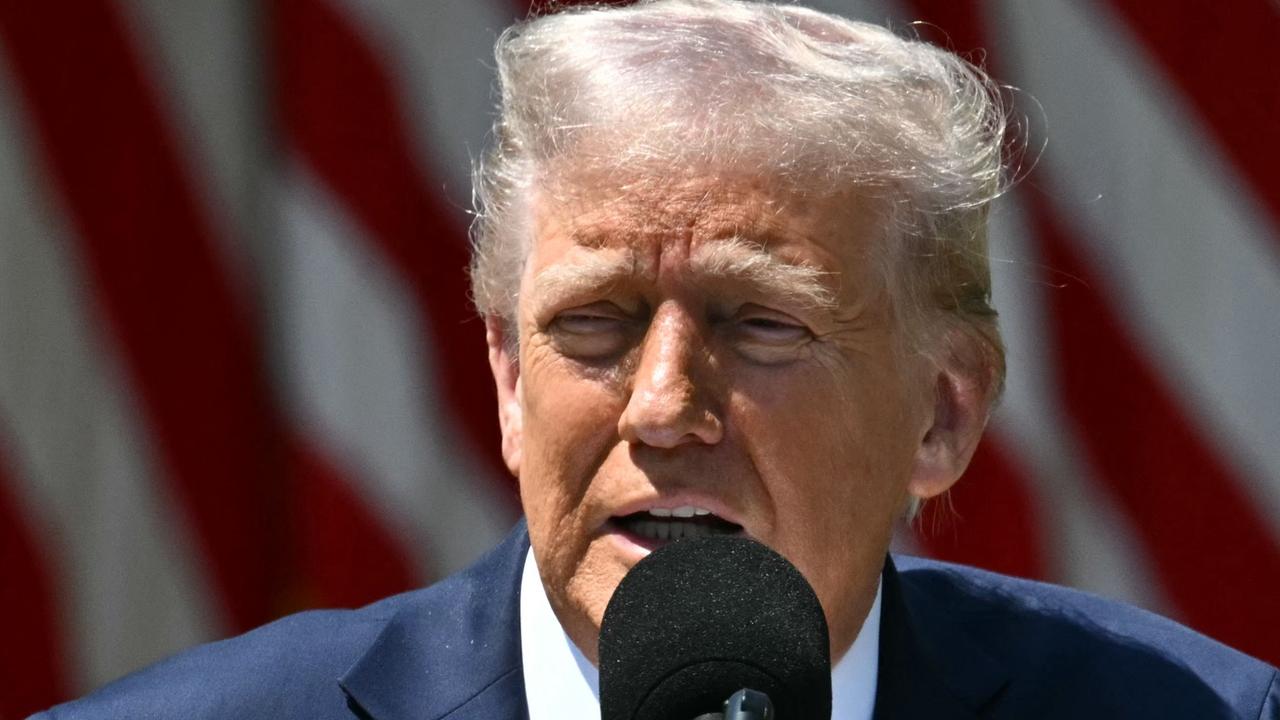‘Little secret’: Trump tactic exposed as post-election chaos fears grow
Donald Trump appears to be paving himself a path to total victory – even if he loses the November 5 presidential election.

ANALYSIS
Donald Trump appears to be paving himself a path to total victory. Even if he loses the November 5 presidential election.
Mr Trump claims he and Republican House Speaker Mike Johnson have a “little secret”. And this will have a “big impact” on the election’s outcome.
The presidential contender told supporters at his recent Madison Square Garden rally that this “secret” would be revealed only “when the race is over”.

The “race” is this week’s election. And that means the promised “big impact” has nothing to do with how America votes.
Instead, it is feared it is about the ensuing legal and political chaos he has been telegraphing now for months.
But Mr Johnson weighed in on the drama surrounding the “little secret”, telling voters in Pennsylvania it related to a get-out-the-vote strategy, not something “diabolical”.
“It’s a thing we have about — it’s a get-out-the-vote. It’s one of our tactics on get-out-the-vote,” Mr Johnson said.
“It’s not diabolical,” he added, according to The Hill. “It’s actually very good. It’s going to help us with the turnout.
Nevertheless, US political analysts suspect Mr Trump has prepared the ground to once again exploit gaps in the US Constitution.
It’s a tactic that failed on Mr Trump’s first attempt on January 6, 2021. His then vice president refused to accept a controversial interpretation of the Constitution giving him the power to reject the result.
This time, Vice President Kamala Harris will be acting in that certification role. Which explains Mr Trump’s determination to influence the Electoral College (state-selected electors who vote for a president on their state’s behalf) – and the House Speaker.

Between them, political analysts argue Mr Trump and Mr Johnson can throw the Constitution’s rigid electoral timeline into disarray, and exploit the outcomes.
“It seems possible – probable, even – that Trump was alluding to putting in play the plan his people tried in 2020,” Boston College Professor Heather Cox Richardson writes.
“That plan was to create enough chaos over the certification of electoral votes in the states to throw the election into the House of Representatives. There, each state delegation gets a single vote, so if the Republicans have control of more states than the Democrats, Trump could pull out a victory even if he had dramatically lost the popular vote.”
What’s old is new again
“Trump has refused to admit that he lost the 2020 election, and says that he won’t abide by the results of the 2024 election unless it is ‘fair’,” says American Enterprise Institute (AEI) senior fellow emeritus Peter Wallison.
“For some candidates, this might be a plausible position, but Trump never provided any evidence of electoral fraud in 2020, and still refused to accept in that election.”
What happened after the 2020 election exposed the severe weaknesses of the US Constitution.
Under the Constitution, the sitting vice president’s last act is to certify the count of the electoral votes.
US voters do not vote for a president or vice president. Instead, they vote on how their state’s representatives should vote.
Each state legislature then delegates a group of Electoral College electors to deliver this verdict to Capitol Hill. Their numbers differ from state to state based on how many Senators each has. And the Constitution allows each state to appoint electoral voters in whatever manner it chooses.

In total, there are 538 electoral votes. A simple majority – 270 or more – is needed to determine a winner.
If, for whatever reason, a majority is not secured – the Constitution calls for a “contingent election”. Here, the House of Representatives gets to choose who it wants to fill the role of president, and the Senate chooses the vice president.
But each of the 50 states gets one vote – regardless of differences in population.
And neither the House nor the Senate will be required to consider the outcome of the November popular vote.
In 2021, Mr Trump attempted to overturn the election outcome by pressuring his vice president Mike Pence to reject the electoral votes of several swing states and accept those offered by fake supporting electors. Many of these now face serious criminal charges.
“If this had occurred – and it didn’t occur only because Pence refused to comply – it would have created the greatest constitutional crisis in our history,” says the AEI’s Mr Wallison.
“So, when Trump says he will only accept the results of the 2024 election if he considers them ‘fair’, that is not an idle comment. It’s a warning.”
The ‘little secret’ of success
“The threat remains,” says Tim Heaphy, who led the investigation into Mr Trump’s role in the violent January 6, 2021 insurrection attempt on Capitol Hill.
But if Mr Trump does not win a clear majority on November 5, his path to victory is narrow.
He is no longer in power.
And new laws have passed through the political process to plug some of the holes he exposed in his first attempt.
Yet his team of “Make America Great Again” (MAGA) enforcers have been busily working in the background to ensure the loyalty of key players in every step of the electoral process across vital swing states.
All they need now is plausibility.

This can be achieved through:
â— Widespread public distrust of the election result being fuelled by old and social media speculation. Claims of voter fraud are already being repeatedly asserted – without substantiation,
â— Loyalist state and county officials. They can throw doubt and confusion over the validity of ballot box results,
â— Loyalist state politicians. They can create a political schism by appointing “alternate” presidential electors for their state, adding to the confusion in Washington DC,
â— Loyalist congressional Republicans. They can choose which competing group of electors to accept from each state,
â— Ensuring there are not enough votes accepted to produce the 270 majority votes needed for the Electoral College to appoint a presidential team. This will trigger a contingent election in the House, which will likely have more Republican states.
This may be where Republican House Speaker Mike Johnson and Mr Trump’s “little secret” comes into play.
The US Constitution is vague on how such a contingent election must occur.

All roads lead to January 6, 2025
For this desperate ploy to work, Mr Trump needs the Republican Party to retain all of its seats in the House of Representatives.
A majority there could hand him the top job.
January 6 is when the Constitution requires the House and Senate to count the Electoral College votes – no matter what. This also occurs three days after new House representatives and Senators take their seats.
If MAGA loyalist Republicans retain control of the House and the legislative governments of the swing states, Mr Trump’s path to power remains open.
Republican House Speaker Johnson didn’t mention Mr Trump’s “little secret” when he addressed the Madison Square rally. But he expressed conviction in ultimate victory.
“I am convinced … we are going to grow the House majority, we’re going to take back the Senate and send Donald Trump back to the White House,” he said.


The vagueness of the Constitution when it comes to contingent elections will likely leave much to the discretion of whoever is House Speaker.
This puts the House Speaker in the position of kingmaker.
This will be Mr Johnson. If he retains his position.
And he’s already set a precedent. In January 2021, Mr Johnson did what Vice President Pence did not – he openly backed the fake electors challenging Joe Biden’s Electoral College majority.
“If Republicans can’t resolve the speaker fight before January 6 — which was nearly the case in 2023, when Kevin McCarthy claimed the gavel after 15 votes and three days of infighting — it would usher in another kind of unprecedented crisis: a leadership vacuum that would complicate the ability of Congress to convene on January 6 altogether,” analysts for Politico argue.
“No one knows what would happen in that scenario, but congressional aides and lawyers are beginning to contemplate strategies for even the wildest contingencies.”
Jamie Seidel is a freelance writer | @JamieSeidel






